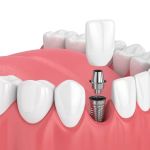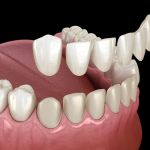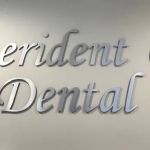Effective Oral Care Strategies for Seniors
- 1. Importance of Oral Health for Seniors
- 2. Key Challenges Faced by Seniors in Oral Care
- 3. Effective Strategies for Oral Care in Seniors
- 4. Real-Life Case Study: A Senior’s Journey to Better Oral Health
- 5. Prevention and the Role of Regular Checkups
1. Importance of Oral Health for Seniors
Oral health is a crucial aspect of overall health, especially for seniors. As we age, the likelihood of developing oral health problems such as gum disease, tooth decay, and tooth loss increases. Poor oral hygiene can lead to serious health complications, including heart disease, diabetes, and stroke, making it vital for seniors to maintain good oral care habits.
Additionally, many seniors wear dentures, which require special care to avoid infections and discomfort. Maintaining a healthy mouth not only improves physical health but also enhances confidence and quality of life, enabling seniors to smile freely and eat comfortably.
2. Key Challenges Faced by Seniors in Oral Care
As seniors age, they encounter several challenges that make maintaining oral health more difficult:
- Dry Mouth: Many seniors suffer from dry mouth due to medications or health conditions, which can lead to cavities and gum disease.
- Gum Disease: Gum disease, such as gingivitis or periodontitis, becomes more prevalent as we age, causing discomfort, swelling, and sometimes tooth loss.
- Loss of Teeth: Seniors are more likely to experience tooth loss due to decay or gum disease, which can affect the ability to eat and speak properly.
- Difficulty Brushing and Flossing: Seniors with arthritis or other physical limitations may find it challenging to properly brush and floss their teeth.
Despite these challenges, effective oral care strategies can help seniors manage these issues and maintain optimal oral health throughout their lives.
3. Effective Strategies for Oral Care in Seniors
Here are several effective strategies to help seniors maintain their oral health:
- Brush and Floss Regularly: Brush your teeth at least twice a day with fluoride toothpaste and floss daily to remove food particles and plaque. If you have difficulty using regular brushes, try electric toothbrushes or specialized grips that make it easier to hold and maneuver the brush.
- Use Fluoride Treatments: Fluoride can help strengthen tooth enamel and prevent cavities. Seniors should consider fluoride treatments at the dentist and fluoride toothpaste for daily use.
- Stay Hydrated: Drinking plenty of water throughout the day helps combat dry mouth, which is common among seniors. Water also helps wash away food particles and bacteria in the mouth.
- Address Dry Mouth: For seniors experiencing dry mouth, it’s important to use saliva substitutes, chew sugar-free gum, or use moisturizing mouthwashes to keep the mouth moist.
- Healthy Diet: A nutritious diet rich in vitamins and minerals can support gum health. Eating foods high in fiber and calcium, such as fruits, vegetables, and dairy, can help protect against tooth decay and gum disease.
By implementing these strategies, seniors can effectively manage their oral health and prevent common dental issues.
4. Real-Life Case Study: A Senior’s Journey to Better Oral Health
Meet Mary, a 68-year-old woman who had been struggling with tooth decay and gum disease due to dry mouth and medication side effects. After a visit to her dentist, she was encouraged to incorporate several oral care strategies into her routine, such as using fluoride toothpaste, drinking more water, and using a saliva substitute.
Mary also began visiting her dentist regularly for checkups and professional cleanings. Within six months, she noticed a significant improvement in her oral health. Her gums were healthier, and she no longer experienced the discomfort from tooth decay. Mary’s case highlights how effective oral care strategies, when implemented consistently, can lead to significant improvements in oral health for seniors.
5. Prevention and the Role of Regular Checkups
Prevention is key to maintaining good oral health in seniors. Regular dental checkups allow for early detection of potential problems, such as cavities, gum disease, or oral cancer. By catching these issues early, seniors can avoid more serious and costly treatments later on.
In addition to regular checkups, seniors should consider preventive treatments such as fluoride applications or dental sealants to protect their teeth. Regular cleanings and professional evaluations will help keep their smiles bright and healthy, ensuring a better quality of life in their golden years.







 Nevada Dentistry & Braces4.0 (573 review)
Nevada Dentistry & Braces4.0 (573 review) Pediatric Dental Associates of Randolph4.0 (1772 review)
Pediatric Dental Associates of Randolph4.0 (1772 review) Tacoma Dental Care, Dr. Thi Truong Nguyen, DMD.5.0 (29 review)
Tacoma Dental Care, Dr. Thi Truong Nguyen, DMD.5.0 (29 review) Tranquility Dental Wellness4.0 (500 review)
Tranquility Dental Wellness4.0 (500 review) Amerident Dental PC4.0 (169 review)
Amerident Dental PC4.0 (169 review) Maddison Ave Dental4.0 (83 review)
Maddison Ave Dental4.0 (83 review) The Importance of Oral Health Education During Pregnancy for a Healthy Pregnancy
The Importance of Oral Health Education During Pregnancy for a Healthy Pregnancy Best Tips for Brushing Your Teeth Properly for Healthy Gums: Essential Techniques for Oral Health
Best Tips for Brushing Your Teeth Properly for Healthy Gums: Essential Techniques for Oral Health Why Skipping Dental Checkups Can Lead to Bigger Oral Health Problems
Why Skipping Dental Checkups Can Lead to Bigger Oral Health Problems Advantages of Porcelain Dental Restorations
Advantages of Porcelain Dental Restorations How Can Diabetes Cause Tooth and Gum Problems? Preventing and Managing Oral Health Issues
How Can Diabetes Cause Tooth and Gum Problems? Preventing and Managing Oral Health Issues Healthy Habits for Promoting Good Oral Health and Hygiene: Tips for a Healthy Smile
Healthy Habits for Promoting Good Oral Health and Hygiene: Tips for a Healthy Smile